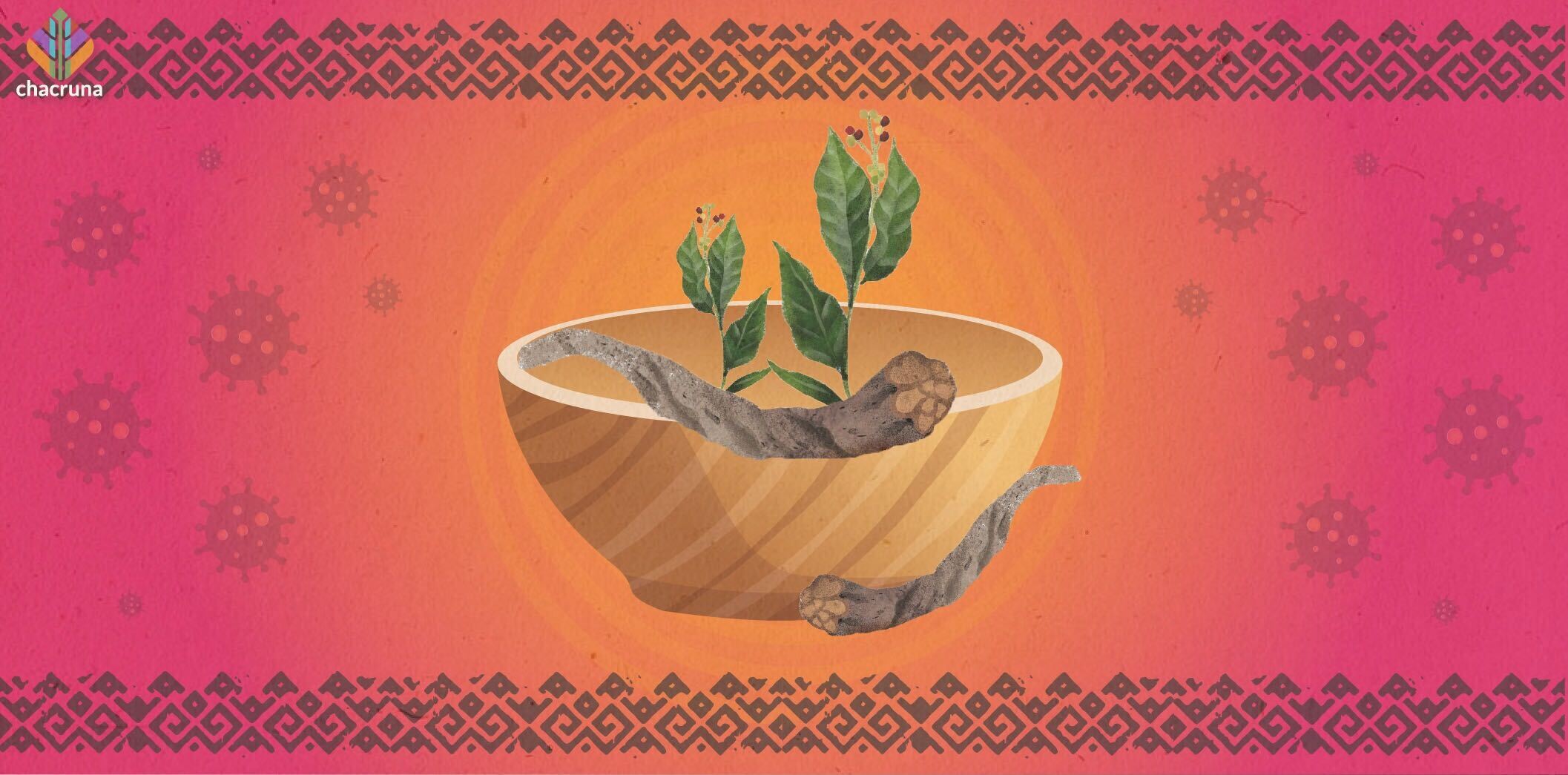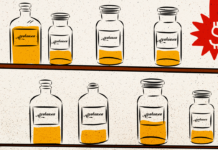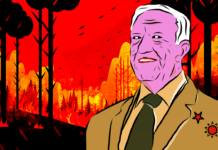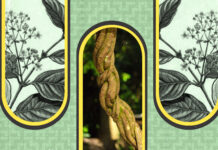- The Emergent Field of Psychedelic Chaplaincy - April 19, 2022
- Preparing Ourselves for the Psychedelic Future with Berra Yazar-Klosinski - November 3, 2021
- Stewarding Psychedelic and Ecological Biospheric Wisdom with Deborah Parrish Snyder - October 13, 2021
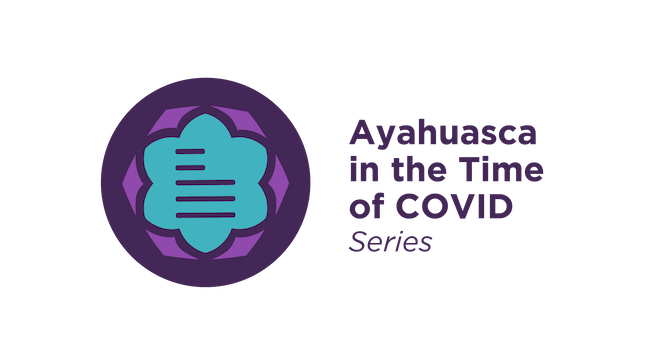
The burgeoning expansion of ayahuasca around the globe has allowed for the evolution of an infinitely diverse array of ayahuasca practices and communities, spanning from Indigenous groups in the Amazon Basin and traditional ayahuasca churches in Brazil, to newly evolving neoshamanic traditions in North America, Europe, and beyond. This series will examine how the practices and traditions of these diverse communities are evolving to meet the challenges that have emerged as a result of the global pandemic and the measures taken to mitigate its impact.
The coronavirus pandemic has created global disruptions that have affected each and every one of our lives and respective communities. Like a great and terrible wind, the force of the pandemic has uprooted the expectations we held for the foreseeable future, forcing us to adapt to a strange “new normal.”
This series explores how the coronavirus has changed every aspect of life, including plant medicine ceremonies. Looking beyond Amazonian Indigenous communities and the traditional ayahuasca religions of Brazil, this article focuses on how COVID-19 has impacted neoshamanic ayahuasca facilitators based in the US.
Due to the fact that ayahuasca is classified as a controlled substance under federal law, all of the individuals interviewed for this article have requested to remain anonymous.*
Reinventing Ceremonial Practice
Within the plant medicine community, and the global community more broadly, a sense of polarization has emerged between those that accept the new realities presented by the pandemic, and those that negate the very existence of the coronavirus, asserting that the pandemic is nothing more than an exaggeration or a government conspiracy to diminish individual freedom.
Since the arrival of the pandemic, there has been a rise in conspiracy theory thinking, especially in spiritual communities (Fuller, 2020). From a harm-reduction perspective, many in the plant medicine space have urged their community to avoid the mistake of reducing the pandemic to a fear-based media-generated reality and warning them to steer clear of spreading unfounded conspiracy theories.
Differences of opinion aside, all facilitators we spoke to erred on the side of caution, emphasizing that, above all, their main priority as facilitators is to ensure participant health and safety, regardless of their personal beliefs. Due to government stay-at-home and social distancing orders, most facilitators had to put a sudden pause on plant medicine ceremonies. For some, this meant weeks and even months of inactivity having a major impact on ceremony organizers, with a vast majority now leading significantly fewer ceremonies, some choosing to stop leading ceremonies altogether, and others continuing to operate as they had been doing pre-pandemic.
Laura Willis, a West Coast facilitator trained in the Shipibo lineage, shared that, “Pre-coronavirus, we used to host ceremonies with 13 participants and, when we started again after the lockdown, we started having ceremonies with four, and then, gradually, seven people.” She added that she hopes to have up to 10 participants, but safety measures are being decided on a day-by-day, case-by-case basis.
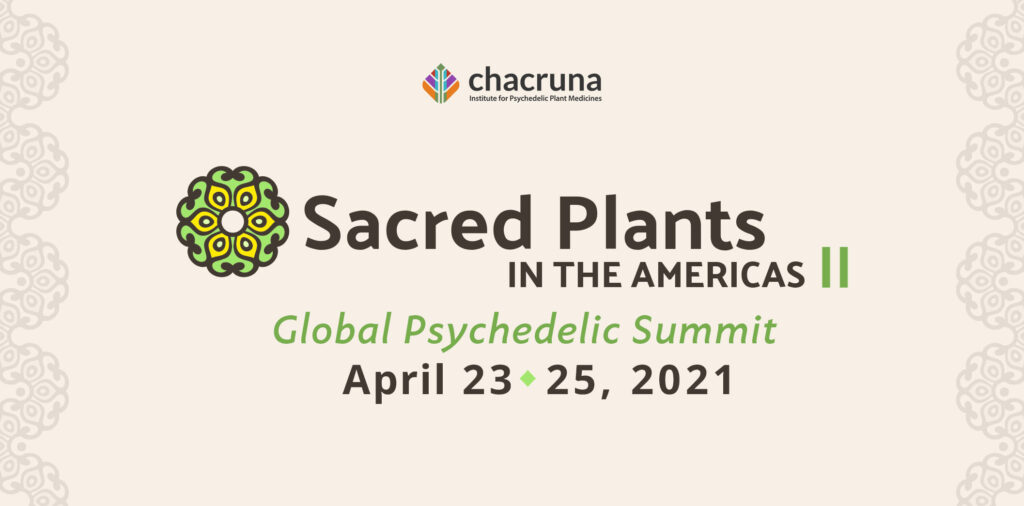
Join us at Sacred Plants in the Americas II
Another West Coast facilitator, Mike Parker, shared that he waited for two months after the pandemic hit to start leading ceremonies again, and that the first one he did was a private, one-on-one session. However, Parker empathized with those who went back into practice sooner, acknowledging that, if he didn’t have financial resources, he would be taking greater risks. “I understand there are people that rely on their work to feed their families, and if it is your livelihood, you have to do what you have to do.” He also added that part of the reason that some practitioners haven’t changed their practices substantially is because they believe life is full of calculated risks, and that, “at some point, we are going to have to live our lives.”
In ayahuasca circles, it is common for participants to share a small cup to consecrate the sacrament, which is given directly to each participant in turn. However, under COVID circumstances, the majority of facilitators are giving everyone their own small cup to drink from, advising them to keep it with them for the duration of the event. Facilitators also avoid touching the participant’s cup for any reason, pouring from a separate measuring cup.
Some have entirely eliminated soplas (tobacco rituals) and limpias (spiritual cleansings) from ceremonies in order to keep distance, while others maintain that it is an important part of the ceremony.
Some have entirely eliminated soplas (tobacco rituals) and limpias (spiritual cleansings) from ceremonies in order to keep distance, while others maintain that it is an important part of the ceremony. “Part of the acceptance of consent is that this is a high-risk situation, and there is no way to make it not high risk,” Willis shared.
Beyond this, social distancing measures are being implemented, and facilitators are hosting ceremonies with smaller total capacities to maintain adequate space between participants. Wherever possible, ceremony organizers are trying to limit their events to open-air, outdoor environments, encouraging participant camping in some cases. However, this measure is not possible for all, in that some facilitators operate in cities. Some fear that having exclusively outdoor, camping-only events would mean that their work season will be cut short because the quickly approaching winter will inevitably limit the viability of sitting outdoors at night.
At present, some ayahuasca facilitators are choosing only to host ceremonies with experienced participants, and are not taking on any newcomers. Explaining this reasoning, facilitator Dan Jones shared, “our practice is a meditation in which we encourage each person to cultivate an atmosphere of quietude and concentration.” However, it is not uncommon for someone to begin to “externalize” their experience by talking, moving, making sounds, yelling, or weeping, which sometimes inhibits others’ ability to concentrate on their meditation. When this type of “externalizing” becomes disruptive, “we don’t want to stop the individual’s process or make it wrong, but we want to take them to a separate space where they can continue their process safely without disturbing others.”
However, sometimes individuals are not able to follow physical instructions or move themselves easily, requiring physical, hands-on support to carry them safely and watch over them to ensure that their needs are met. In pandemic times, most of these steps would require a violation of social distancing protocols, as completing every step would involve touching someone else, and being in an indoor space together to contain the sound. Many facilitators have limited or altogether eliminated the presence of hands-on helpers who tend to participants experiencing difficulty.
“While “externalizing” could happen to anyone,” Jones explains, “it is much less common with experienced people who have some knowledge of how to navigate the journey landscape, and what respectful, socially appropriate boundaries are in this context.”
Rapid Onsite Testing
Some facilitators are beginning to explore the prospect of onsite testing as a protective measure. In such cases, participants are given a COVID rapid test (IgM-IgG), which typically provides results within 7–15 minutes, detecting for exposure to the virus over the last few days. However, rapid testing has limited value, as it only detects exposures that occurred more than five days prior, not to mention the possibility of false positives and negatives.
“We’ve only tried it once, just to do a run-through because we were committed to doing everything we can to be as safe as possible,” Willis remarked. “We felt we needed to explore it if we were going to be in accordance with our own values, but, in the end, it turned out to be a no-go because of its lack of efficiency.”
Beyond testing participants, other facilitators have felt an increased responsibility to the greater community, choosing to get personally tested after every ceremony before seeing relatives and friends.
Ayahuasca, and the spiritual community that often comes with it, is so important to some people that they are willing to take risks; however, not all people feel this way, which has generated substantial controversy in the plant medicine community.
Even with adaptations and new ceremonial safety protocols in place, there is a limit to what facilitators can do. The reality of ayahuasca ceremonies is that they are high risk, with participants sharing spaces in which extensive purging often happens. As long as participants are well informed of the risks beforehand, it remains at their discretion to choose what they wish to expose themselves to. Ayahuasca, and the spiritual community that often comes with it, is so important to some people that they are willing to take risks; however, not all people feel this way, which has generated substantial controversy in the plant medicine community.
Sign up for our newsletter:
Commenting on the subject, Bia Labate, Executive Director of the Chacruna Institute, shared, “In general, I’d say that folks that have integrity are being mindful and maintain their integrity during COVID; the ones that were charlatans, or scammers, invented creative ways to continue with their scams.”
Increased Demand and Lowered Incomes
Although some people feel uncomfortable gathering in the present climate, there still remain many who are eager for it. The majority of the practitioners that we spoke with pointed to a rising demand for ayahuasca ceremonies and a general increase in the public’s desire to work with plant medicine since the arrival of the pandemic. In this time of great challenge, it is perhaps unsurprising that people have an increased desire to be part of spiritual communities and wish to escape cities and seek refuge in nature.
“Demand is as high as ever, but we cannot meet it with the limited offerings we have,” shared facilitator Dan Jones. “In general, the level of precaution of participants seems to be lower than the standard we are holding as an organization.”
Chaikuni Witan, an ayahuasca facilitator and student of Shipibo medicine has observed “a rising demand for ceremonies paired with a rising concern.” Reflecting on the potential reasons for this growing interest in plant medicines, Witan suggests that the rising demand stems from the fact that COVID is causing many people to re-evaluate their life priorities.
“As a result of the tumult, people are choosing to do what is important to them now, upholding more essential values that they did beforehand,” he says. “One is confronted with one’s own mortality, and is naturally driven closer to a deeper sense of spirituality.”
Despite increased demand for plant medicine, many facilitators have adjusted to a new reality of lowered incomes in the short-term, and for the foreseeable future.
Despite increased demand for plant medicine, many facilitators have adjusted to a new reality of lowered incomes in the short-term, and for the foreseeable future. Jones shared that, “I can’t really envision a scenario where this generates as much money in the future as it did in the past; but, fortunately, that wasn’t our goal in the first place.”
Jones identified a trifecta of changes that will continue to significantly impact possible returns made from conducting ceremonies in a post-pandemic world. First, many practitioners and retreat centers are holding ceremonies with fewer participants. Second, the economic downturn caused by the virus and resulting restrictions placed on commerce and travel mean that many people, perhaps especially those in need, can no longer afford to pay as much. Last, the increased precautions that are being adopted by facilitators, such as sanitization, professional food preparation, and onsite testing, are extra expenses.
To supplement lowered incomes, facilitators have had to get creative in their ways of making money. Some are resorting to fundraising to cover their ongoing operating costs and supplement staff payrolls. Parker shared that, since the pandemic, he’s switched to offering coaching services as well as expanding his practice by offering 5-MeO-DMT sessions. “Under coronavirus health and safety guidelines, DMT is a lot easier to do than ayahuasca, in that there are only two people in the room, it’s much quicker, and there is generally no purging.”
Since the onset of the pandemic, reciprocity has become an emergent theme within the plant medicine community. Many of the facilitators that we spoke with had personal ties to Amazonian healers, and had taken direct action providing donations and emergency aid to their teachers. However, this type of aid is not only directed at Amazonian communities.
Jones has increased efforts to bolster scholarship funds and instituted a “pay-what-you-can” policy, attempting to ensure that those in need and those enduring financial hardship are still able to attend. “We felt it important to make such changes to the way we operate because the people that could most use an expanded perspective and spiritual reassurance may be those with the greatest financial stress,” he shared. By contrast, another facilitator increased the price for ceremonial contributions to make up for the challenging months in which she was unable to work.
A Threat to Plant Teachers
Some feel that, in addition to the risk of spreading the virus, the pandemic presents additional risks to facilitators that could result in legal issues or in a wide-ranging crackdown on ayahuasca itself. “Our primary intentions are the safe passage of every participant, as well as the safe passage of the plants,” said Willis. “If they say, ‘no gathering,’ and all of a sudden, we have a gathering, it could bring unwanted attention that could potentially jeopardize the plants and compromise our capacity to work with them.”
Ayahuasca ceremonies have the potential to become “super-spreader” events that could lead to multiple infections, and if these were traced back to their origins, facilitators could receive unwanted media attention potentially triggering legal crackdowns on ayahuasca.
Ayahuasca ceremonies have the potential to become “super-spreader” events that could lead to multiple infections, and if these were traced back to their origins, facilitators could receive unwanted media attention potentially triggering legal crackdowns on ayahuasca. As such, the “underground” nature of ayahuasca ceremonies presents a potentially greater risk than infecting individuals with coronavirus; rather, it poses a legal threat to ayahuasca as a plant teacher.
In addition, despite the fact that ayahuasca use has extended beyond the confines of the Amazon Basin, the brew itself is still significantly sourced from there. Although some facilitators I spoke with for this article were not concerned about the future of sourcing ayahuasca, issues in the supply chain have emerged since the onset of the pandemic.
With growing interest in and demand for plant medicine, some are concerned about the sustainability of ayahuasca harvesting practices and the increased pressure on the environment from which it originates. It has been suggested that this interruption of global supply chains can serve as an important point of reflection on where these plants come from and the sustainability of their cultural and biological ecosystems, encouraging us to rethink the way we consume sacred medicines (International Center for Ethnobotanical Education, Research, and Service, 2020).
Reframing COVID as a Spiritual Emergency
According to data published by the CDC, Americans are experiencing more mental health challenges as a result of the COVID-19 pandemic. Due to social distancing measures and stay-at-home orders, individuals are experiencing higher rates of anxiety and depression.
Similar to the altered state of consciousness produced by psychedelics, coronavirus, and its impact on our world have created an altered state of consciousness en masse. Coming face-to-face with our own mortality and the fragile existence of our species here on Earth has changed the way we see ourselves and our place within the larger whole.
Just like a psychedelic experience, coronavirus has been inherently destabilizing for both our inner and outer realities, often producing the sense that we are in a state of crisis.
Just like a psychedelic experience, coronavirus has been inherently destabilizing for both our inner and outer realities, often producing the sense that we are in a state of crisis. The concept of “spiritual emergency” was coined by Stanislav and Christina Grof (1989) and is used to refer to states of consciousness that are often mistaken for mental illness, but are differentiated in that they are crises of personal transformation.
Earlier this spring, philosopher Jules Evans (2020) hinted at the connection between the concept of spiritual emergency and the collective crises that many of us are now facing as a result of the pandemic. Just like spiritual crises, he urges us to reframe coronavirus as “a moment of intense species connection” in which we need to learn to embrace uncertainty.
In Grof’s concept of spiritual emergency, an individual’s crisis can be an opportunity as well as a threat. These experiences present the possibility for consciousness to evolve, by utilizing the disruption as a means to reinterpret and reform our way of being and interaction with the world.
Our present circumstance has us collectively moving through liminal space, reforming our identities, and discovering the unknown as rich with potentiality. Rapidly spreading across continents and devastating communities globally, the pandemic echoed an imminent but forgotten truth; namely, that of our interconnection. Perhaps ironically, our period of social isolation and distancing has served to make us more aware of our interconnection, emphasizing the need to approach our predicaments while underscoring the need for our collective consciousness to evolve.
*All names used in this article have been changed in order to conceal the identity of those interviewed.
References
Evans, J. (2020, September 3). Spiritual emergency & mental health in a post-Covid world [Video]. YouTube. https://www.youtube.com/watch?v=xe_79RQhKBY
Fuller, D. (2020, August 7). Spirituality & conspiracy, what’s going on? Medium. https://medium.com/rebel-wisdom/spirituality-conspiracy-whats-going-on-2c84f91777b0
Grof, S., & Grof, C. (1989). Spiritual emergency: When personal transformation becomes a crisis. New York City, NY: Penguin Putnam.
International Center for Ethnobotanical Education, Research, and Service. (2020, September 10). Plant medicine sourcing in changing times. https://www.iceers.org/plant-medicine-sourcing-in-changing-times/
Take a minute to browse our stock:
Did you enjoy reading this article?
Please support Chacruna's work by donating to us. We are an independent organization and we offer free education and advocacy for psychedelic plant medicines. We are a team of dedicated volunteers!
Can you help Chacruna advance cultural understanding around these substances?


